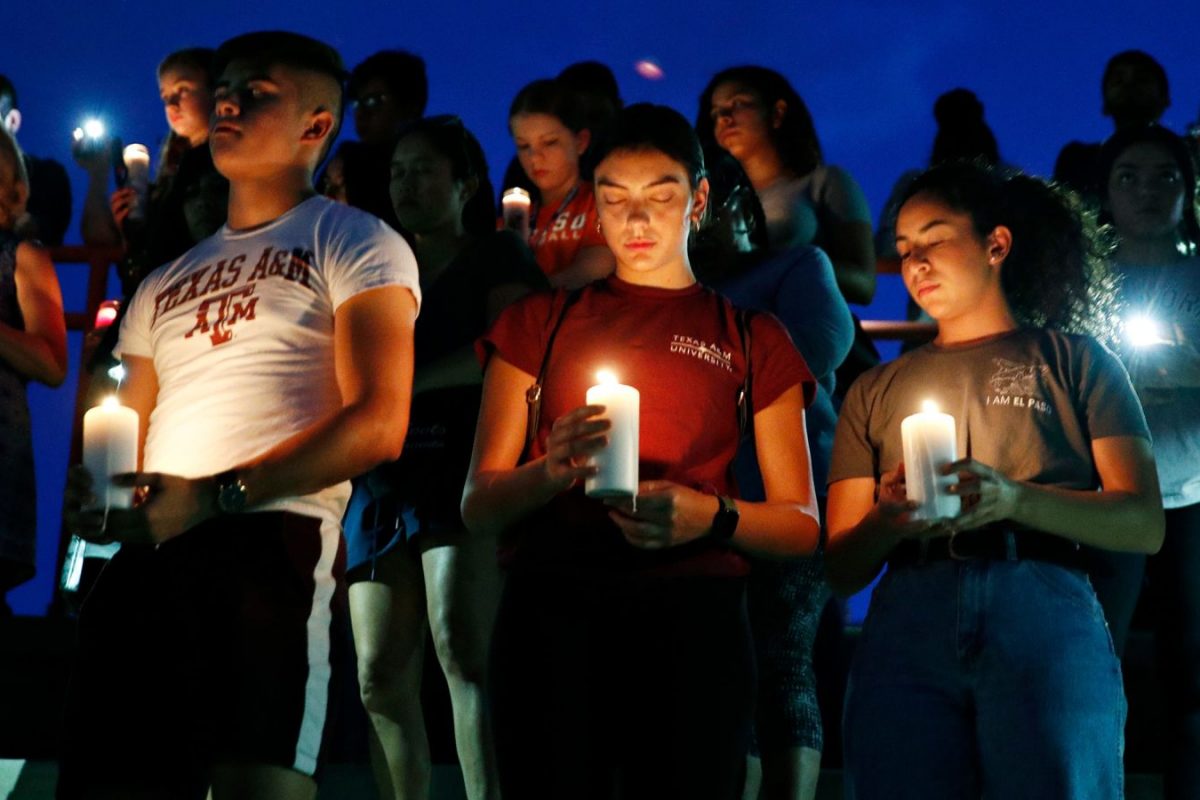
By Rabbi Michael Knopf, Temple Beth-El, Richmond, Virginia
Sunday, August 4, 2019 —
As I turned on the news following Shabbat, I was devastated by the dissonance of transitioning from a Shabbat Shalom, a Sabbath of peace, to news of yet another community shattered by a cruel and horrific act of violence. How can we speak of peace in a world torn apart by malice and terror, in which people cannot even shop for groceries or school supplies without fearing the next eruption of malevolence from men indoctrinated in white supremacist hate, emboldened by the cynical words of callous leaders, radicalized on the internet, and armed thanks to political cowardice and negligence? How can we speak of peace in this moment? How can we speak at all?
Sometimes, when the hurt is too raw or the anger is too fierce, all there is to do is cry. Like so many, I have done my share of crying lately — I weep for the dead, I weep for their families, and I weep for innocent people everywhere in this country who go to work or to the store or to the movies or to a festival not knowing if they will return alive. I cry because of the brokenness of our world in which such tragedies seem not only frequent but also inevitable. I cry for my children, for all of our children, to whom we’ve bequeathed a world in which they are not safe anywhere, not even in their schools or in their synagogues, churches, mosques or malls.
But my faith affirms that in my tears, I keep good company. According to Jewish tradition, God is also perpetually in tears due to the brokenness of our world. One of the first teachings in the Babylonian Talmud, the central sacred text of my ancient rabbinic ancestors, is that God arises several times each night, unable to rest, and roars like a lion in pain, crying out, “Woe to Me! For because of my children’s sins I destroyed my house, burned My Temple and exiled them among the nations of the world.”
In the rabbinic consciousness, the destruction of the ancient Temple — which we begin to commemorate this coming Saturday evening on the 9th of the Hebrew month of Av — was the greatest of cataclysms. It was an event that involved not only the deaths of thousands, but it precipitated centuries of Jewish homelessness, powerlessness, and pain, and as such, came to symbolize the damaged and unredeemed state of our world.
A piece of me draws comfort from this notion, that God looks down at what happened in El Paso and Dayton (and in Gilroy, and on and on) and cries out loudly like an injured lion.
But I also believe in this teaching, my tradition is offering us more than the mere comfort of an empathetic God. According to the ancient rabbis, the sin that resulted in the destruction of the Temple was ‘sinat hinam,’ unfettered, free-flowing hate. It’s not that this hatred was baseless — which is how the term sinat hinam is often, but wrongly, translated. People then, just as today, had reasons for their animosity, however misguided those reasons may have been.
What was unrestrained was people’s willingness and ability to act on their hate. My rabbinic ancestors taught that ruin and catastrophe, destruction and death, is the inevitable end result of a society where hatred is not only pervasive but also unchecked. Each and every night, then, and especially on a night like tonight, God wails and weeps along with us over the devastation loosed upon the world because of hate run rampant.
But if unrestrained hate is the cause of the world’s brokenness, then we also know the way toward repair. The way to begin putting the shattered pieces of our hearts and our world back together is through ‘ahavat hinam,’ unfettered, free-flowing love.
What kind of love is that?
It’s the love that propelled the Muslim community to lead the charge in raising hundreds of thousands of dollars for the Jewish community after the Pittsburgh synagogue shootings. It’s the love that drove Muslims and Christians to form human chains around synagogues all over the country to protect Jewish worshippers with their own bodies. It’s the love that brought people of all backgrounds to airports and mosques all over the country in outrage and in solidarity in the face of travel bans and persistent Islamophobia emanating from corridors of power.
It’s the love that has moved us time and again to stand together — too many times — in defense of the vilified, the dehumanized, the marginalized, and the vulnerable in the face of resurgent and resilient threats to their freedom, equality, and safety.
It’s the love that says that whatever our differences, we are all of us brothers and sisters, children of the same God, all of us equal in our worth and infinite in our dignity, all of us fundamentally responsible to and for each other.
It is, in the end, the love of the heroes whose stories we will inevitably hear over the next few days, regular people who risked their lives in the face of grave terror to save the lives of others.
If all of us commit ourselves to that same love, that same heroism, and that same sense of responsibility for the vulnerable; if all of us commit ourselves to welcoming the stranger and seeing in the face of the other our brother or our sister; if all of us commit to advancing unrestrained love in the face of a world torn asunder by free hate — it might just save us.
We might yet be able to put the broken pieces of this world back together and build of this world a sanctuary fit for the indwelling of a God of compassion, justice, and peace. May we merit to see such a world built speedily and in our days.
May the memory of those we mourn be a blessing, and may their souls be bound up in the bonds of life. And may we soon bring God’s peace upon us, and the whole world.
